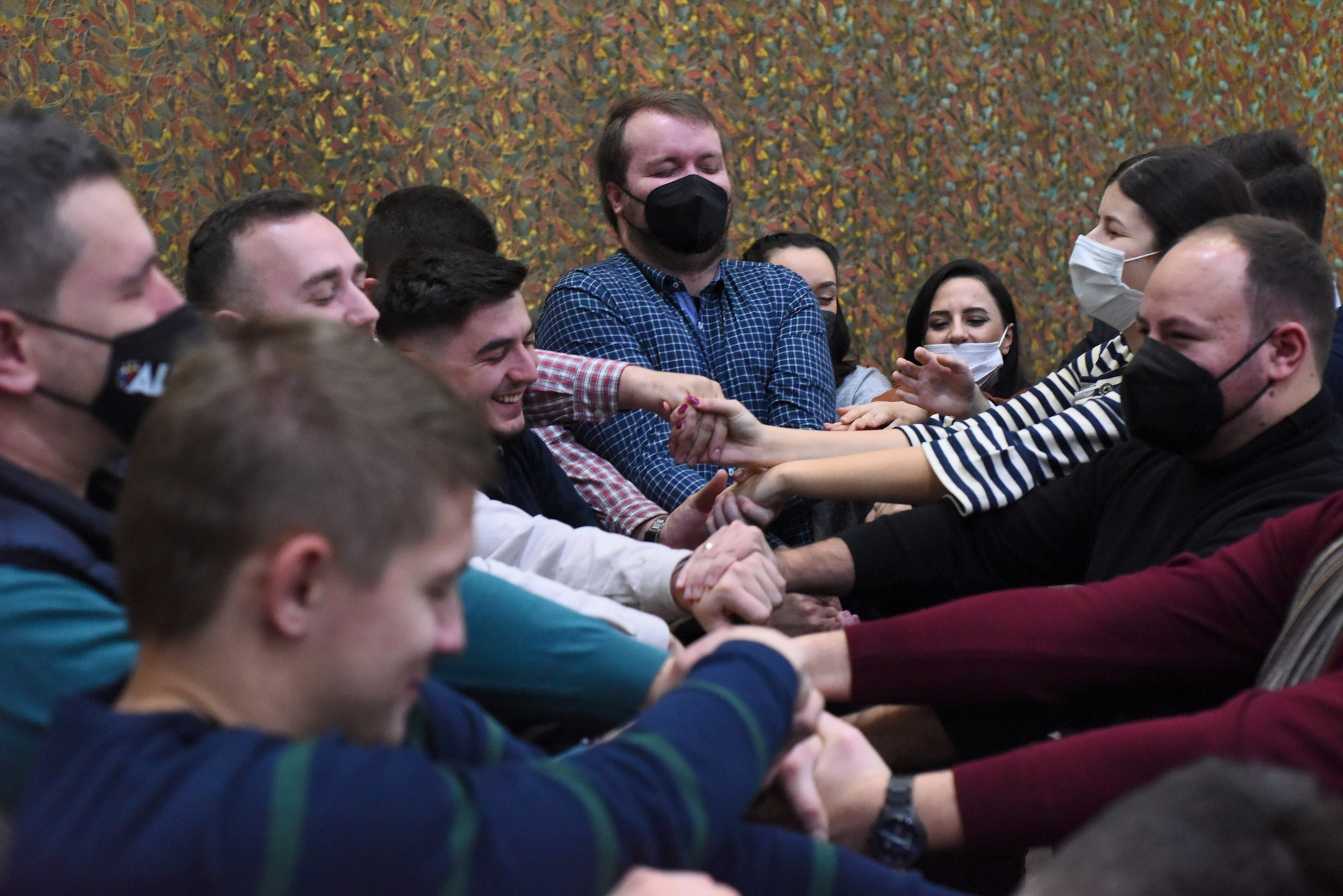
In September, 30 young leaders from different political parties and civil society organizations (CSOs) in North Macedonia joined IRI’s Advanced Leadership in Politics Institute (ALPI) to become collaborative and credible political and civic actors; advocate for others and reach consensus; and respond to youth and citizen needs. IRI’s recent public opinion poll demonstrates that 79% of the population believes that young people do not have a good future in the country. This sentiment explains why youth remain wary that things will improve. Through this two-year program, IRI will elevate the roles of young political and civil society leaders who have great potential as future changemakers and catalysts to improve political conduct.
Youth Participation Critical to Successful Policy Dialogue
As evidenced from IRI’s public opinion polls, North Macedonia’s political parties have low amounts of credibility and are among the least trusted institutions by citizens. These challenges are reflected in the increasing disengagement of youth in political processes and policy dialogue. Only 30% of those ages 18 to 35 say they are very likely to vote in parliamentary elections.
Youth are the backbone of the nation, an integral part of any society. If parties wish to keep young citizens engaged in democratic processes, they must change their approach to politics. IRI’s ALPI program empowers young leaders regardless of their party or ethnic affiliation to participate in and propose evidence-based policies on many topics. Strengthening their competencies and skills help to shape their views and affect their attitudes and thoughts toward the openness and effectiveness of the country’s political system. This engagement will equip youth with better problem-solving abilities, which will eventually enable them to become effective leaders.
Approaches to Advance Youth Participation
Through a series of modules, ALPI members gain knowledge and valuable skills in many areas. For example, they learn to develop leadership skills and participate in policymaking processes, which enables them to approach politics with a clear vision. Furthermore, through ALPI and its plethora of networking opportunities, participants can strategically position themselves for leadership roles, engage others with a positive attitude and empathy, and hone their unique skillsets.
Youth participation can be improved through several approaches, such as education and capacity building. Through active participation, young people learn vital life skills, develop necessary knowledge, and perform positive civic and community actions. Therefore, IRI’s support to young leaders enables them to fulfill their own aspirations and goals, as well as find common ground on the values that must be upheld to improve political participation in North Macedonia.
Building a Sense of Belonging and Taking Responsibility for Societal Development
Engaging youth in the community creates a sense of belonging and provides purpose. Subsequently, they learn to live up to their responsibilities once they realize that their voices and opinions are heard and taken seriously. Although a regulatory legal framework on youth policies at the national and local level did not exist for some time, the Law on Youth Participation and Youth Policies, adopted in 2020, provided a foundation for some of these objectives.
Likewise, IRI’s ALPI program is designed to support efforts to institutionalize youth involvement in decision-making processes. Through IRI’s support, young leaders have embraced their responsibility in translating their knowledge and skills into tangible initiatives that will improve participation in policymaking. Such initiatives include establishing youth centers, appointing youth officers at the municipal level to support relevant issues and needs, mobilizing CSOs to engage in joint strategies, and empowering young women to increase political participation in the society.
Through ALPI, IRI is advancing the role of youth and “walking the walk” by supporting these young leaders who invest their time, think creatively, participate enthusiastically, and demonstrate great devotion to improving the lives of youth and all citizens in North Macedonia.
Top